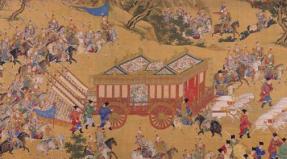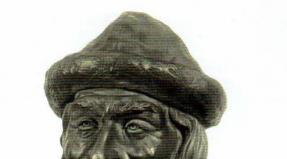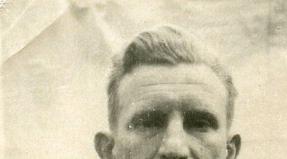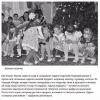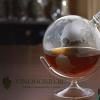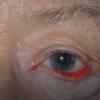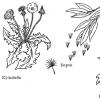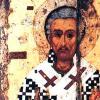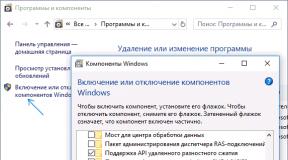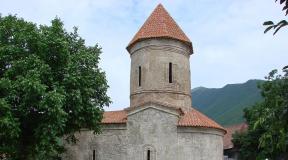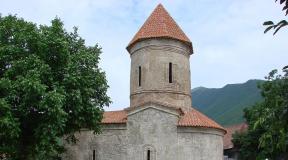Rules for admission to the Irkutsk State Medical University. Irkutsk State Medical University (IGMU) Irkutsk State Medical University
"APPROVE"
Chairman of the Admissions Committee,
Rector of the State Educational Institution of Higher Professional Education "Irkutsk State Medical University of the Ministry of Health and Social Development of the Russian Federation"
Professor I.V. Malov
RECEPTION RULES
TO IRKUTSK STATE MEDICAL UNIVERSITY
(2009)
1. GENERAL PROVISIONS
1.1. These rules for admission to the Irkutsk State Medical University (ISMU) are based on:
Law of the Russian Federation "On Education";
Order of the Ministry of Education and Science of the Russian Federation dated 01.01.01 No. 000 (registered by the Ministry of Justice of the Russian Federation on January 13, 2009, registration No. 000) "On approval of the Regulations on the forms and procedure for conducting state (final) certification of students who have mastered basic general education programs of secondary (complete) general education"
Model regulation on an educational institution of higher vocational education(higher educational institution), approved by the Decree of the Government of the Russian Federation of 01.01.01 N 71 (Sobraniye zakonodatelstva Rossiyskoy Federatsii, 2008, N 8, art. 731).
Order of the Federal Service for Supervision in the Sphere of Education and Science dated January 1, 2001 “On Amendments to the Order of the Ministry of Education and Science of the Russian Federation dated January 1, 2001 No. 000 “On Approval of the Procedure for Admission of Citizens to State and Municipal Educational Institutions of Higher Professional Education for the 2009/2010 academic year"
Charter of GOU VPO ISMU of the Ministry of Health and Social Development of the Russian Federation.
1.2. Citizens of the Russian Federation, stateless persons, compatriots abroad, as well as foreign citizens are accepted to study at the Irkutsk State Medical University for basic educational programs of higher professional education.
Irkutsk State Medical University is recruiting for basic educational programs of higher professional education at the following faculties:
1) Medical (specialty - general medicine) (day and evening departments) - the duration of study is 6 and 6.5 years, respectively, and 1 year of internship;
2) Pediatric (specialty - pediatrics) - the term of study is 6 years and 1 year of internship;
3) Medical and preventive (specialty - medical and preventive work) - the term of study is 6 years and 1 year of internship.
4) Dental (specialty - dentistry) - the term of study is 5 years and 1 year of internship.
5) Pharmaceutical (specialty - pharmacy) (full-time and part-time education) - the duration of study is 5 and 5.5 years, respectively, and 1 year of internship.
6) Management in healthcare, medical law, medical biochemistry. Specialty - "Nursing" - the term of study is 4 years full-time and 5 years part-time, 1 year internship. Specialty - "Medical Biochemistry" - the duration of study is 6 years (full-time education), 1 year of internship.
1.3. Citizens of the Russian Federation are admitted to places financed from the federal budget on a competitive basis if they receive education at this level for the first time.
1.4. The number of places in the Irkutsk State Medical University for admission to the first year of students studying at the expense of the federal budget is determined by the admission target established by the Ministry of Health and Social Development of the Russian Federation (Ministry of Health and Social Development of the Russian Federation).
1.5. In order to assist state and municipal authorities in solving the socio-economic problems of the regions, the Irkutsk State Medical University allocates places for targeted admission within the target figures and organizes a separate competition for these places. The number of places for targeted admission is approved by the Academic Council of ISMU.
Admission to target places is accompanied by the conclusion of ISMU contracts with the relevant state authorities or local governments of the constituent entities of the Russian Federation.
To ensure high-quality selection and preserve the competitive principle of admission to the first courses, it is planned to send at least 1.2 people to the budget target place. Persons enrolled in target places enter into standard contracts for targeted training. Those who did not pass the target competition can participate in the general competition. Target places, which turned out to be vacant after passing the entrance examinations and enrollment, are provided to persons participating in the general competition.
1.6. Above the set number of reception places funded by the funds federal budget, ISMU accepts citizens on the basis of contracts with payment of tuition fees by legal entities and (or) individuals within the number determined by the license, in accordance with the plan for admission to places with payment of tuition fees and the “Procedure for admission to places with payment of tuition fees (additional places ) to the Irkutsk State Medical University. For places with payment of tuition fees on a contractual basis, a separate competition is organized and the same set of entrance tests is established as for persons entering at the expense of the federal budget.
1.7. Citizens of foreign states, as well as stateless persons, are admitted to the Irkutsk State Medical University in accordance with the “Procedure for Admission of Foreign Citizens to ISMU” approved by the Academic Council of ISMU.
1.8. Persons who have a state document of secondary (complete) general or secondary vocational education, or a diploma of primary vocational education, if it contains a record of the bearer receiving secondary (complete) general education, are admitted to the first year of ISMU on a competitive basis.
Certificates issued by educational institutions of primary vocational education are not documents confirming the presence of secondary (complete) general education, and are not accepted by the selection committee.
1.9. Applicants are guaranteed, regardless of gender, race, nationality, language, origin, place of residence, attitude to religion, beliefs, membership in public organizations (associations), age, social, property and official status, the presence of a criminal record, receiving free higher professional education on a competitive basis within the limits of state educational standards, if a citizen receives education of this level for the first time.
Restrictions on the rights of citizens to receive vocational education on the basis of gender, age, and the presence of a criminal record are determined by the laws of the Russian Federation only to the extent that this is necessary in order to protect the morality, health, rights and legitimate interests of others, to ensure the defense of the country and the security of the state.
1.10. To receive documents from applicants, conduct entrance examinations and enroll in the first year, a reception, subject examination and appeal commissions are created. The chairman of the selection committee is the rector of ISMU.
1.11. The work of the selection committee and office work, as well as the personal reception of applicants and their parents (legal representatives) is organized by the responsible secretary, who is appointed by the rector.
1.12. Upon admission to the Irkutsk State Medical University, the observance of the rights of citizens in the field of education established by the legislation of the Russian Federation, the transparency and openness of the work of the selection committee, the objectivity of assessing the abilities and inclinations of applicants are ensured.
1.13. The admission committee organizes career guidance work, announces the "Rules for Admission" and a list of areas and specialties of training for which it accepts documents in accordance with the license and state order.
During the period of acceptance of documents, the selection committee daily updates information on the number of applications submitted and the competition, organizes staff duty at the phones of the selection committee to answer questions. Information on the number of applications submitted is provided by competition groups and the university as a whole.
1.14. Admission to a higher educational institution for the first year is carried out on a competitive basis according to the applications of persons:
Having a secondary (complete) general or secondary vocational education - according to the results of the unified state exam (hereinafter - the USE) in the Russian language, biology, chemistry.
In these subjects, the results of the USE in 2008 or 2009 are accepted as the results of entrance examinations at the discretion of the applicant.
1.15. Admission to a higher educational institution for the first year is carried out according to the results of entrance examinations conducted by ISMU independently for the following categories of citizens:
- having a secondary (complete) general education received before
January 1, 2009 - upon admission for full-time and part-time education;
Having a secondary vocational (medical) education - to study under the training programs for a specialist of the relevant profile;
Having a secondary (complete) general education received in educational institutions of foreign states.
Those with higher professional education
If persons entitled to admission based on the results of entrance examinations conducted by the university independently submit the results of the USE in the relevant general education subjects, the university takes into account the results of the USE as the results of entrance examinations in these general education subjects.
Citizens with handicapped of health can participate in the competition both on the basis of the results of the Unified State Examination, and on the basis of the results of entrance examinations (in the absence of the results of the Unified State Examination), conducted by ISMU
The results of the USE, recognized as the results of entrance examinations in general education subjects corresponding to the field of study (specialty) for which admission is carried out, and confirming the successful completion of entrance examinations in general education subjects, should not be lower than the minimum number established by the Federal Service for Supervision in Education and Science points according to the results of the Unified State Examination in such general education subjects, confirming the development of the main general education program of secondary (complete) general education in accordance with the requirements of the federal state educational standard in the current year.
1.15. Persons who did military service by conscription and were dismissed from military service, within a year after their dismissal from military service, upon admission to ISMU, are given the right to use the results of the unified state exam, which they passed during the year before being called up for military service.
1.16. ISMU announces the admission of citizens to study in basic educational programs only if they have a license for the right to conduct educational activities in these educational programs.
1.17. In order to familiarize the applicant and (or) his parents (legal representatives) with the charter of ISMU, a license for the right to conduct educational activities, with a certificate of state accreditation of the university for each of the areas of training (specialty), giving the right to issue a state-recognized document on higher professional education, the main educational programs of higher professional education implemented by the higher educational institution, and other documents regulating the organization of the educational process and the work of the selection committee, the higher educational institution places these documents on its official website.
1.18. The ISMU Admissions Committee provides applicants who personally applied for admission and do not have the results of the Unified State Examination, information about the place of registration for passing the Unified State Examination in the additional dates for the Unified State Examination in the constituent entity of the Russian Federation at the location of the university.
1.19. During the period of accepting documents, the ISMU Admissions Committee daily informs about the number of applications submitted and the competition, organizes the operation of special telephone lines to answer all questions of applicants.
1.20. Information on the number of applications submitted, the competition should be provided for each area of training (specialty) and posted on the official website of the ISMU and on the information stand of the selection committee.
2. ACCEPTANCE OF APPLICATIONS AND DOCUMENTS
2.1. Acceptance of applications and documents from applicants is carried out by selection committees, which are structural divisions of the selection committee.
The selection committees are formed by the faculties, the deans of the respective faculties or their deputies are appointed chairmen of the selection committees.
2.2. Admission to ISMU is made on the personal application of citizens.
In the application for admission, applicants indicate the chosen areas of training (specialty), faculty, form of education (full-time, part-time, part-time), conditions for admission and training (on a general basis, targeted, with payment of cost).
Persons entering the places financed from the federal budget of Russia indicate that they receive education of this level for the first time.
2.3. Applications are accepted:
Applicants to the first year for study have the right to apply simultaneously to several universities, to several areas of training (specialties), to various forms of education, according to which the main educational programs are implemented at the university, as well as simultaneously to budget places and places under contracts with payment of tuition fees.
· to places with payment of tuition fees on the basis of contracts with legal entities and (or) individuals for all forms of education - from June 20 to July 25.
Graduates of secondary medical educational institutions in the specialty: "Medicine", "Obstetrics", "Nursing" are accepted for full-time and part-time education of the faculty "Health Management and Medical Law".
Persons with specialized secondary medical and pharmaceutical education, higher medical education are admitted to the correspondence course of the Faculty of Pharmacy.
Graduates of the faculty of pre-university training of the Irkutsk State Medical University participate in the competition on a general basis.
2.4. When applying for admission to ISMU, the applicant, at his own discretion, submits the original or a certified photocopy of documents proving his identity, citizenship, an original or a certified photocopy of a state-recognized education document. Upon admission to the first year, the applicant submits the original or a certified photocopy of the certificate of the results of the exam. If the original or a copy of the certificate of USE results cannot be submitted at the time of application for admission due to objective reasons, the applicant in the application indicates information about passing the USE and its results (or the place where the USE was taken during the additional dates for the USE), as well as the reason for the absence certificates of the results of the exam.
Persons entering the target places submit the original state document on education and certificates of the results of the Unified State Examination.
Persons who have special rights upon admission to higher educational institutions established by the legislation of the Russian Federation, as well as persons with disabilities, submit the relevant documents when submitting an application.
Applicants must attach to their application for admission:
· a state document on secondary (complete) general education, secondary or primary vocational education or a copy thereof;
· 6 photos 3×4 cm in size with a corner;
Documents giving the right to benefits established by the legislation of the Russian Federation (for persons applying for these benefits upon admission).
A copy of the document on education is notarized or certified by the selection committee upon presentation of the original.
2.5. Applicants can also be presented to the selection committee with certificates of winners and prize-winners of the All-Russian and International Olympiads held by federal agency on education, certificates of winners and prize-winners of regional competitions held by the Department of Education or the Department of Education jointly with the Council of Rectors of the Irkutsk Region, and other documents, the provision of which is in the interests of the applicants themselves.
2.6. The technical secretary of the selection committee issues a receipt to the applicant, which lists the accepted documents, and also notes whether copies or originals of documents on secondary education were accepted.
The technical secretary of the selection committee is personally responsible for the safety of documents.
2.7. When submitting an application, the selection committee must familiarize the applicant with the following documents:
· "Charter of IGMU";
a license for the right to conduct educational activities in the chosen area of training (specialty);
· a certificate of state accreditation, giving the right to issue a state document on higher professional education, and an application for each area and specialty of training;
These "Rules of Admission";
· a list of areas of training and specialties for which ISMU announces the acceptance of documents in accordance with the license and state order;
the number of places financed from the federal budget for admission to the chosen direction (specialty) on a general basis and for the target set;
the number of places in each area of training and each specialty with payment of tuition fees on a contractual basis;
· the schedule of entrance examinations in the competitive group corresponding to the chosen direction (specialty) for persons with disabilities and receiving a second higher education;
rules for filing and considering appeals based on the results of entrance examinations;
· an extract from the internal regulations of ISMU.
The fact of acquaintance of the applicant with the certificate of state accreditation of the university in the chosen field of study or specialty is recorded in the application and certified by the personal signature of the applicant.
In the application by signature, the applicant also confirms the following:
receiving higher professional education for the first time (upon admission to places financed from the federal budget);
familiarization with the license for the right to carry out educational activities, the certificate of state accreditation of ISMU;
familiarization with the date of submission of the original document on education, original USE certificates and other documents regulating the organization of the educational process and the work of the selection committee;
Familiarization with the rules for filing an appeal;
2.8. Applications for the inclusion of the results of previously conducted tests (in accordance with clause 2.5 of these "Rules for Admission") as the results of entrance examinations (in accordance with the features of admission to the directions and specialties of the Irkutsk State Medical University, clause 15), are made before 16:00 on July 25 2009.
Before the specified deadlines, applicants also have the right to submit additional documents to the selection committees that give them the right to benefits established by the legislation of the Russian Federation. After the specified deadlines, no additional documents confirming the passing of tests by the selection committees are accepted and claims are not considered.
2.9. Documents accepted from the applicant in the selection committee can be returned to the owner before the release of the order for enrollment only in person on the basis of a written application, passport and receipt issued by the selection committee upon admission.
The original documents of education are returned within the next business day after the application is submitted.
2.10. An application for admission to the first year, as well as the necessary documents, can be sent by applicants through public postal operators (hereinafter - by mail). The date of sending the documents must be no later than July 10 . The date of departure is determined by the stamp of the post office. Acceptance of documents sent through public postal operators ends on July 25.
When sending documents by mail, the applicant shall attach to the application for admission photocopies of documents proving his identity and citizenship, photocopies of state documents on education, certificates of the results of the Unified State Examination, as well as other documents provided for by these Rules. The application for admission must be drawn up in accordance with the standard application form posted in the information materials. Documents are sent by registered mail arriving through public postal operators with a notification and a description of the attachment. The notification and the certified inventory of the attachment are the basis for confirming the acceptance of the applicant's documents.
2.11. Applicants who have submitted deliberately false documents to the admission committee of ISMU are liable under the legislation of the Russian Federation.
3. ENTRY TESTS
3.1. Entrance tests for admission to ISMU are carried out in order to determine the possibility of applicants to master the relevant professional educational programs.
3.2. As entrance tests, the results of the Unified State Examination in the Russian language, chemistry and biology are taken into account. The results of all entrance examinations are evaluated on a hundred-point scale.
3.3. The results of the winners and prize-winners of the final stage of the All-Russian Olympiad for schoolchildren, members of the national teams of the Russian Federation participating in international Olympiads in general subjects and formed in the manner determined by the Ministry of Education and Science of the Russian Federation, are recognized by universities as the highest results of entrance examinations ("100" points) in these general education subjects when admitted to areas of training (specialty) that do not correspond to the profile of the Olympiad.
3.4. For applicants to places financed from the funds of the relevant budget (for general competition, for targeted admission, having the right to out-of-competition admission), as well as for places under contracts with payment of tuition fees, for a certain area of training (specialty), the same entrance tests are established .
3.5. Disabled children, disabled people of groups I and II, who, according to the conclusion federal institution medical and social examination is not contraindicated studying at ISMU pass entrance examinations in the form and materials of the Unified State Examination on a voluntary basis, otherwise the admission of these persons is carried out according to the results of entrance examinations organized by the university independently.
3.6. The language of all types of entrance examinations is Russian.
3.7. The control of the reliability of information about participation in the Unified State Examination provided by applicants to ISMU is carried out by the selection committee together with the SEC of the Irkutsk region. The ISMU Admissions Committee has the right to independently apply to the Federal Database of Certificates of USE results for confirmation of the accuracy of the information provided by applicants about participation in the USE.
3.8. Entrance tests in the form and materials of the Unified State Examination are conducted by the SEC of the Irkutsk Region within the time limits established by the Federal Service for Supervision in Education and Science.
3.9. Applicants who passed the entrance examinations of the SEC of the Irkutsk region in the form and materials of the Unified State Examination have the right to file an appeal in writing to the conflict commission of the Irkutsk region (Irkutsk, Lytkina st., 75 "a").
The ISMU Appeal Commission is not entitled to accept appeals on the procedure and results of entrance examinations in the form and materials of the Unified State Examination.
3.10. The specific dates and times of the entrance examinations, conducted by ISMU independently, for the categories of citizens specified in paragraph 1.15 of these Rules, are determined by the schedule, which is approved by the chairman of the selection committee.
3.11. At the entrance examinations, a calm and friendly atmosphere is provided, the applicants are given the opportunity to fully demonstrate the level of their knowledge and skills.
3.12. Entrance tests in biology, chemistry and the Russian language, conducted by the State Medical University, for persons: with disabilities; receiving a second higher education; having a secondary (complete) general education received before January 2009, upon admission for full-time and part-time education; having a secondary vocational (medical) education - for training in the training programs for a specialist of the relevant profile; having a secondary (complete) general education received in educational institutions of foreign countries are carried out in the form of testing on tickets (test tasks) compiled on the basis of programs in general education subjects of secondary (complete) general education developed by the Ministry of Education of Russia.
3.13. Applicants who passed entrance examinations in the form of entrance examinations have the right to appeal to the Appeal Commission of the Irkutsk State Medical University.
3.14. During the entrance test, the examinees must observe the following rules of conduct:
· keep silence;
work independently;
Do not use any reference materials (tutorials, reference books, electronic notebooks, etc., as well as any kind of cheat sheet);
Do not talk to other examinees;
not to provide assistance in solving tasks to other examinees;
Do not use the means of operational (mobile) communication;
Use for records only forms of the established sample, having the seal of the admission committee of the university;
Do not leave the territory, which is established by the selection committee for the entrance test.
For violation of the rules of conduct, the applicant is removed from the entrance test with an unsatisfactory mark for the work performed, regardless of the number of correctly completed tasks, about which an act is drawn up, approved by the selection committee.
3.15. Persons who did not appear without a valid reason for the entrance test, as well as those who scored the number of points corresponding to the "unsatisfactory" assessment, are not allowed to further tests.
3.16. Re-participation in the entrance test is not allowed.
3.17. Applicants who do not agree with the assessment received on the test have the right to appeal
3.18. The appeal, in which the applicant must explain the reasons for disagreeing with the assessment, is submitted in writing on the day of the oral exam or on the day the assessment is announced for the written exam addressed to the chairman of the admissions committee of the medical university.
3.19. During the entrance examinations, it is prohibited for unauthorized persons to be in the educational buildings (audiences) in which the entrance examinations are conducted.
3.20. During the entrance examinations, the selection committee:
organizes and controls access control to educational buildings in which entrance examinations are conducted;
organizes the duty of a medical worker to provide, if necessary, the first medical care.
4. COMPETITION AND ENTRY TO STUDENTS
4.1. Enrollment should be based on the results of the competition after the completion of the entrance examinations.
4.2. Winners and prize-winners of the final stage of the All-Russian Olympiad for schoolchildren and members of the national teams of the Russian Federation that participated in international Olympiads in general subjects and formed in the manner determined by the Government of the Russian Federation are accepted without entrance tests for areas of training (specialty) corresponding to the profile of the Olympiad.
The order on the enrollment of persons entitled to admission without entrance examinations is issued five days after the completion of the acceptance of documents and is posted on the official website of the university and at the information stand of the admissions committee. At the same time, persons who have the right to enter without entrance examinations, within these five days after the completion of the acceptance of documents, are required to provide the original document of the state standard on education.
4.3. The procedure for enrolling applicants who have successfully passed the entrance examinations is carried out in stages and includes:
Summing up the results of the entrance examinations and the announcement of a complete list of persons who have successfully passed the entrance examinations, ranked in descending order of the number of points scored (with their indication), whose enrollment can be considered by the admissions committee for various conditions of admission, (hereinafter - the list by name);
Issuance of an enrollment order.
4.4. Enrollment for training in the first year is carried out in the following terms:
July 27 - announcement on the official website of the university and at the information stand of the admission committee of a complete list of surnames with a list of those recommended for enrollment, as well as the deadlines for submitting original documents by persons recommended for enrollment;
If there are vacancies, further enrollment is carried out from among the persons following in the full surname list behind the list recommended for enrollment, until the vacancies are completely filled according to the following schedule:
August 5 - announcement on the official website of the university and at the information stand of the admission committee of the list of surnames with the highlighting of the second list recommended for enrollment, as well as the deadlines for submission of original documents by persons recommended for enrollment;
August 12 - completion of the submission of original documents by persons included in the second list recommended for enrollment;
August 13 - issuance of an order on the enrollment of persons from the second list of recommended for enrollment and submitted original documents; announcement on the official website of the university and at the information stand of the admission committee of the list of surnames with the allocation of the third list recommended for enrollment and the timing of their submission of original documents;
August 21 - issuance of an order on the enrollment of persons included in the third list recommended for enrollment and who submitted original documents.
4.5. Within the terms established by ISMU after the completion of entrance examinations for persons entering the first year, the applicant submits:
when enrolling in state-funded places - the originals of the certificate of the results of the Unified State Examination and the state document on education;
when enrolling in places under contracts with payment of tuition fees, including when enrolling persons with higher professional education:
for studying as a student - the originals of the certificate of the results of the Unified State Examination (except for applicants for obtaining a second higher professional education) and a state document on education;
for studying as a student - a certified photocopy of a state document on education and a certificate of the results of the Unified State Examination and a certificate from the university where he is a student.
At the same time, the applicant, who sent the documents by mail, upon presentation of the original state document on education and the certificate of the results of the Unified State Examination, presents the original of the document proving his identity, a copy of which was sent to him by mail.
4.6. The order (orders) on enrollment based on the results of the competition, indicating the number of points scored in the entrance examinations, both for places financed from the federal budget, and for places under contracts with payment of tuition fees, are published on the official website of the university and on the information stand admission committee.
4.7. Admission to state-funded places after enrollment of persons eligible for admission without entrance examinations is carried out by the university in the following sequence:
4.7.1. persons who have successfully passed entrance examinations, including additional entrance examinations (if any), and who have the right to out-of-competition admission;
Out of competition (only for citizens of the Russian Federation) for all forms of education, subject to successful completion of entrance examinations, the following are enrolled upon presentation of the relevant documents:
· orphans and children left without parental care, as well as persons from among orphans and children left without parental care, under the age of 23;
Disabled children, disabled people of groups I and II, who, according to the conclusion of the institution of the State Service for Medical and Social Expertise, are not contraindicated in medical higher educational institutions;
Citizens under the age of 20 who have only one parent - a disabled person of the 1st group, if the average per capita income of the family is below the subsistence level established in the corresponding subject of the Russian Federation;
participants in hostilities and disabled combatants;
military personnel undergoing military service under a contract (with the exception of officers), whose continuous duration of military service under a contract is at least three years, subject to successful completion of entrance examinations for training with development educational programs part-time (evening) or part-time education;
citizens who have served for at least three years under contract in the Armed Forces of the Russian Federation, other troops, military formations and bodies in military positions to be replaced by soldiers, sailors, sergeants, foremen, and dismissed from military service on the grounds, provided for in subparagraphs "b" - "d" of paragraph 1, subparagraph "a" of paragraph 2 and paragraph 3 of article 51 of the Federal Law of 01.01.01 "On military duty and military service" for training in educational programs of higher professional education, subject to successful passing entrance examinations;
· Persons who received or suffered radiation sickness, other diseases, and disabled people as a result of the Chernobyl disaster; *)
· participants in the liquidation of the consequences of the disaster at the Chernobyl nuclear power plant in the exclusion zone; *)
Note. Marked with an asterisk *) benefits apply to citizens affected by the disaster on Chernobyl nuclear power plant, and participants in the liquidation of its consequences, who moved from the territory of Ukraine, the Republic of Belarus and other states to the territory of the Russian Federation for permanent residence, regardless of whether they are citizens of Russia.
4.7.2. persons who have successfully passed entrance examinations, including additional entrance examinations (if any), taking into account the pre-emptive right to enroll.
In case of equality of competitive points, the following categories of applicants (only for citizens of the Russian Federation) receive the priority right for enrollment in the following order:
a) citizens discharged from military service;
b) children of servicemen who died in the performance of their duties of military service or died as a result of military injuries or diseases,
c) children of persons who were killed or died as a result of military injuries or diseases they received while participating in counter-terrorism operations and (or) other measures to combat terrorism. The procedure for determining the persons who took part in the conduct of counter-terrorism operations and (or) other measures to combat terrorism is established in accordance with federal laws
d) living (working) on the territory of the zone of residence with the right to resettlement;
e) children of deceased (deceased) Heroes and full cavaliers of the Order of Glory;
f) persons of indigenous nationalities of the Russian Federation who have the status of refugees;
g) children of military personnel of the Russian Federation serving outside its borders;
h) persons with secondary medical vocational education;
i) persons who graduated from general educational institutions, educational institutions of primary vocational education with a medal;
j) persons who graduated from secondary vocational schools with honors;
k) minor members of large families (if there are at least two minor brothers and sisters);
l) having additional training (graduated from educational institutions of primary and secondary vocational education in a related specialty);
o) women with children under the age of three;
o) graduated from the faculty of pre-university training of ISMU;
p) winners and prize-winners of republican and regional olympiads, regional exhibitions of technical creativity;
c) graduates of lyceums, whose work is supervised by ISMU
r) having a higher average score in the document of secondary education;
s) having a higher score in a major subject in a document of secondary education and in a certificate for the Unified State Examination.
4.8. After the deadline for submitting the original state documents on education and certificates of the results of the Unified State Examination, the rector of ISMU issues an order to enroll persons recommended by the admissions committee for various conditions of the competition for enrollment and who submitted the originals of the relevant documents. An appendix to the enrollment order is a surname list of the indicated persons. The order with the application is placed on the information stand of the selection committee and on the official website of the higher educational institution.
4.9. In the event that, during an inspection conducted by the Federal Service for Supervision in the Sphere of Education and Science, the facts of a competition are revealed and an applicant is unlawfully enrolled on the basis of unreliable information about the results of the Unified State Examination submitted by him, the student is subject to expulsion in the prescribed manner. Officials who have committed these violations are liable in accordance with the legislation of the Russian Federation.
4.10. In the presence of a competition, the admissions committee ensures that applicants who are the most capable and prepared to master the basic educational programs are enrolled at ISMU, which is determined by the sum of points scored by them based on the results of the Unified State Examination.
4.11. Applicants for the target recruitment participate in the competition for target places allocated to the regions. Applicants on a contract basis participate in the competition for places allocated in excess of the admission control digits.
4.12. Claims of persons who have not provided the originals of the specified documents on time are not considered by the selection committee, regardless of the reasons for the violation of the deadline.
4.13. Enrollment of applicants on a general basis to target places and places with payment of tuition fees is carried out according to a separate competition.
4.14. Applicants who did not pass the competition for target places can participate in the competition on a general basis for places financed from the federal budget of the Russian Federation.
4.15. Applicants who did not pass the competition for places financed from the federal budget of the Russian Federation can participate in the competition for places with payment of tuition fees, subject to the conclusion of an agreement on payment of tuition fees in accordance with clause 1.6. of these Admission Rules.
4.16. Those enrolled in the number of students, but who did not start classes within 10 days without a good reason, are expelled.
4.17. Applicants who did not pass the competition are required to pick up the documents they submitted in the selection committees of the faculties:
The original documents on education, not claimed by applicants before the deadline, are sent by mail to the address indicated in the application for admission.
4.18. All other issues related to admission to the Irkutsk State Medical University are decided by the admission committee.
The admission rules were discussed and approved at the meeting of the Academic Council of the Irkutsk State Medical University on March 26, 2009 (minutes No. 3).
Selection committee
Irkutsk State Medical University
Irkutsk State Medical University was organized in 1919 as a medical department at the Faculty of Physics and Mathematics of the Irkutsk State University, and on January 20, 1920 it became an independent structural unit- Faculty of Medicine, ISU. Due to a number of circumstances, the date of birth of ISMU has traditionally been established - October 27, 1919.
Irkutsk State Medical University provides students with the opportunity to work in 12 computer classes, an Internet class. There is a rich library that provides all students with the necessary educational, scientific and fiction, as well as equipped with a computer information network.
Currently, Irkutsk State Medical University is the largest medical university in Eastern Siberia. Education is carried out at 7 faculties - medical, pediatric, medical and preventive, dental, pharmaceutical, at the Institute of Nursing Education. There is a faculty of advanced training and professional training of specialists.
Students are trained in 64 departments and courses. Teaching is carried out by a highly professional teaching staff, including 100 doctors and 350 candidates of sciences. The teaching staff of ISMU includes 2 members of the Russian Academy of Medical Sciences, 60 members public academies, 4 Honored Workers of Science of the Russian Federation, 26 Honored Doctors and Health Workers of the Russian Federation, 1 Honored Worker of Higher Education of the Russian Federation, 2 Honored Inventors of the Russian Federation, 1 Honored Worker of Higher Education of the Russian Federation, 5 excellent students of higher education, 5 excellent students of healthcare. For 90 years, about 45,000 doctors, pharmacists, nurses-managers have been trained within the walls of ISMU. More than 4,000 students study at the university, including from a number of countries in Asia and Africa.
Irkutsk State Medical University provides students with the opportunity to work in 12 computer classes, an Internet class. There is a rich library that provides all students with the necessary educational, scientific and fiction literature, as well as equipped with a computer information network.
A student scientific society operates at ISMU, uniting more than 40 scientific circles, and thematic Olympiads are held. Reports of medical students have been repeatedly recognized as the best at Russian and international conferences. Student life is not limited to studies, the university has sports sections, has its own ski base and recreation camp. The KVN team of IGMU entered the major league of the Baikal region. Students have the opportunity to show their talents in amateur performances.
The Medical University in Irkutsk is not just an educational institution, it is a second home for students, an alma mater for the country's leading doctors. What is a university, how to enter it?
History of IGMU
The Medical University in Irkutsk is the oldest specialized university, which is considered the first of its kind in Siberia. The foundation was laid in 1919, when in Irkutsk state university stood out medical department, and in 1920 an independent university was opened.
The founders of the glorious traditions of ISMU were famous doctors - Donskoy V.A., Shevyakov N.T., Bushmakin N.D., Sinakevich N.T.
Already in 1936, on the basis of the university, it became possible to defend candidate and doctoral works, to receive scientific degrees.
V war time the medical university not only sent out orderlies and doctors to the front, but also became a refuge for the wounded. In total, more than 100 thousand soldiers were put on their feet during the war.
In subsequent years and up to the present day, the university has only developed: new associations, directions, specialties were opened, new university educational and socially significant premises were built, numerous successful accreditations and certifications were carried out.
In 2016, Irkutsk State Medical University received a new abbreviated name - FGBOU VO IGMU of the Ministry of Health of Russia.
At the moment, the university exceeds all thresholds established for evaluation by the Ministry of Education.
Key facts about the institution

- The university is subordinate to the Russian Ministry of Health.
- The address of the Irkutsk Medical University is Krasnoe Vosstaniya street, 1.
- In 1995, the institution received the status of "university".
- There are no branch offices.
- Training sessions are held from 8 am, there is no second shift.
- There are food stations in each building.
- Administrative departments are open from Monday to Friday from 8:30 to 17:00. Lunch from 13:00 to 13:30.
Management team

The rector of the university is a graduate of ISMU in 1983, Igor Vladimirovich Malov. Graduated from the educational program "Medicine". At the university he teaches the following disciplines: "Infectious diseases", "Phthisiology". Scientific degree - doctor of medical sciences, professor.
Vice-rectors:
- Yuri Nikolaevich Bykov - socio-economic and general issues.
- Tamara Semyonovna Krupskaya - international relations.
- Andrey Arkadyevich Zhirov - administrative and economic work.
- Igor Zhanovich Seminsky - scientific work.
- Alexey Nikolaevich Kalyagin - medical work, postgraduate education.
- Andrey Viktorovich Shcherbatykh - educational work.
Faculties of the Medical University of Irkutsk
The main educational and scientific work at the university is carried out by faculty divisions. In total, there are 6 of them in the university, the main load is performed by the following:
- Therapeutic. The most numerous in terms of the number of subordinate departments, employees, taught disciplines. It was the first among all divisions (opened in 1919). It was from this faculty that the work of ISMU began. It graduates infectious disease specialists, obstetrician-gynecologists, surgeons, psychiatrists, phthisiatricians, therapists. traumatologists, etc.
- Pharmaceutical. Founded in 1941. Trains pharmacists, whose scope of activity includes not only distribution medicines, but also logistics, storage, manufacturing.
- Medico-prophylactic. Opened in 1930. The teaching staff for 80% consists of candidates of sciences and professors. It produces doctors with specializations "hygienist", "epidemiologist", "bacteriologist".
- Dental. The year 1936 was marked by the opening of this most important and sought-after faculty at all times. It produces dentists-surgeons, therapists, children, orthodontists, orthopedists.
- Pediatric. Was formed in 1982. It produces not only leading children's doctors, but also actively develops in international medicine, collaborating with universities in the USA, France, and Japan.
Specialty

The faculties and specialties at the Medical University of Irkutsk are of the same name at the specialist level, i.e. a student can become a doctor: a general practitioner, a biochemist (Faculty of Pharmacy), a dentist, a pediatrician, in general hygiene and epidemiology, and also a pharmacist.
As part of advanced training, applicants can choose the following areas:
- Hematology.
- infectious diseases.
- Sexology.
- Communal hygiene.
- Dietology.
There are 18 programs in total.
Admission to residency is conducted in 48 profiles, including: endoscopy, pediatric dentistry, ultrasound diagnostics, neonatology, psychiatry-narcology, etc.
At the postgraduate level, 16 educational programs are offered, which the student will later teach at the university, for example: "Pathological Physiology", "Neurosurgery", "Microbiology", "Epidemiology", "Eye Diseases", etc.
Clinics, institutes and additional centers of ISMU
Among them are the following:
- Center for pre-university training. Works with graduates of schools on vocational guidance, identifying potentially capable applicants for the industry. Conducts preparation for exams, acquaintance with the activities of the university, with teachers and students. Location: Krasnogo Vosstaniya street, 2, office 10.
- Institute of Nursing Education. It trains nursing professionals with higher and secondary qualifications, as well as doctors for diagnostics and laboratory research. The address of the subdivision of the Medical University in Irkutsk: Deputatskaya, 45/2.
- Research Institute. Supports student initiatives and conducts research in the field of vector technologies, molecular, microbiology, virology, biotechnology. Location of the unit: Krasnogo Vosstaniya street, 1/3.
- Faculty clinics. Reception is conducted for everyone under the MHI policy in the following departments: neurological, ENT, ophthalmological, therapeutic, dermatological, psychiatric, surgical. You can also go to the dentist and take various analyzes. Address: Gagarin Boulevard, 18.
- professorial clinic. This institution is at the service of the teaching staff of the university, in addition, specialists from other leading healthcare institutions of the city work in it. The clinic is equipped with modern equipment. Location: Krasnogo Vosstaniya street, 16.
Addresses of deans and main departments
Dean's office of the pediatric faculty of ISMU: Krasnogo Vosstaniya street, 2, room 7.
Dean's office of the Faculty of Pharmacy: Krasnogo Vosstaniya street, 2, office 6.
Institute of Nursing Education of the Medical University in Irkutsk: Deputatskaya, 45/2.
Dean's office of the Faculty of Dentistry of the Medical University: Krasnoe Vosstaniya street, 2, office 3.
Dean's office of the Faculty of Medicine: Krasnogo Vosstaniya street, 2, room 7.
Faculty of advanced training: Krasnogo Vosstaniya street, 1, office 109.
Dean's Office of the Faculty of Prevention and Prevention: Krasnogo Vosstaniya Street, 2, office 12.
Practice department: Krasnogo Vosstaniya street, 1, office 221.
Scientific student life of the university

The Medical University of Irkutsk is not only an educational institution, but also an active participant in the scientific development of the region and the country. Numerous conferences, research projects, publications are an important part of the university's activities.
Progressive students at ISMU united for joint scientific work as early as 1922. Then several teachers coordinated the work of various scientific circles. In 1925, more than 160 students carried out research work on a permanent basis.
Now the community of young scientists at ISMU is called "NOMUS". Every year, students participating in it take part in various events, including:
- Baikal conference.
- International conference "Culture. Society. Spirituality".
- Pirogov readings.
- All-Russian Conference "Actual Issues of Modern Medical Science and Public Health".
- Congress of student and youth scientific societies of Russia and CIS countries and many others.

Cooperation with other countries is a necessity for modern Russian universities, because without its development, the institution will not receive accreditation for activities.
This industry is actively functioning at ISMU. The main partner countries of the university: Japan, Mongolia, USA, China, Germany, Korea, India, etc.
Students can participate in international grants, and foreign students, in turn, receive not only knowledge, but also get acquainted with Russian culture, speech, and writing.
There are foreign internships for ISMU employees.
Extracurricular work

Educational work plays a special role at the Medical University of Irkutsk. All student activities are regulated by the headman. It includes representatives from each faculty.
The mass sports committee is dealing with the issue of updating healthy lifestyle life.
The Cultural and Aesthetic Committee implements creative projects at the university. It includes vocal ensembles, KVN teams, dance studios, etc.
The Volunteer Association of Physicians is engaged in preventive and promotional activities in various health care institutions, schools, as well as among people with disabilities.
In addition, there is a press center, the headquarters of student medical teams, an international committee, and the Your Choice association.
Cost of education
An applicant of the Irkutsk Medical University needs to know that the competition for state-funded places is growing every year, so there is a chance of not enrolling. However, in the event that a young man seeks to connect his life with medical activity, there is a reception on a paid basis.
For those wishing to start training in specialist programs, the following amounts are established:
Those who will not be able to enter graduate school through a budget competition must pay about 159,000 rubles for a year of study, and about 169,000 for residency.
Admission conditions

ISMU provides training at several levels of education:
- Specialty. Admission is based on USE scores and entrance examinations. The average passing score at the Medical University of Irkutsk in 2018 is 71.5.
- Residency, postgraduate studies. Admission is carried out only among persons with higher medical education based on internal tests.
- Training. Persons with secondary or higher education only on a paid basis are entitled to apply for additional education.
- Secondary vocational education.
In order to enroll in a higher education program (specialist), you must present a passport, diploma, application and consent to enrollment, a medical certificate and a vaccination certificate. Reception of documents in 2019 will be held from June 20 to July 26 (in case of participation in the competition for a budget place), if enrollment is carried out on a paid basis, then the deadline for submitting documents is August 23.
Average passing scores
For applicants for a specialty at the Irkutsk Medical University, points are calculated in total for three exams: in chemistry, Russian language, and biology. Below are the average scores by category.
Selection committee
For those wishing to enter the specialty, the address of the admission committee of the medical university: Irkutsk, Krasnoe Vosstaniya street, 2.
Applicants for residency and postgraduate studies must bring documents to the address: 3 July Street, 8.
For additional education or advanced training, please contact: st. Red Revolt, 1.
Opening hours: weekdays from 9:00 to 16:00 (break from 13:00 to 14:00), Saturday - from 9:00 to 13:00.
Responsible secretary of the admission campaign - Vadim Alekseevich Dulsky.
Thus, applicants can safely choose a medical university in Irkutsk, because studying there will be a breeze, and the knowledge and skills gained will become an excellent basis for building a medical career.
The organizers of the Medical Faculty were the old Russian intellectuals, in essence, the elite of the Kazan Medical School. Professor N.D. stands at the cradle of ISMU. Bushmakin - the largest anatomist and organizer, rector of the university and the first rector of the Khabarovsk Medical Institute. His associates were: Professor N.T. Shevyakov - world famous biologist, professor N.T. Sinakevich - surgeon of the first hand, professor V.A. Donskoy, with the arrival of which the Museum of Pathology began to work, Professor A.D. Speransky and I.I. Toporkov, Professor M.S. and A.S. Malinovsky and others. These people wrote a wonderful page in the history of ISMU and laid the foundation for traditions, without which the university could not take place. The Faculty of Medicine began its work in very difficult years, in conditions of economic ruin, an extreme lack of food and fuel, lack of the necessary personnel and material base. I.A. Promtov, an honored doctor of the RSFSR, who took part in the organization of faculty clinics in the 1920s, recalled: “This is perhaps the most interesting time in my life. Difficulties brought everyone together. Students and teachers went to the forest, procured fuel and took it out on sleds. The students studied persistently and stubbornly mastered knowledge. The whole team lived as a single, close-knit family.” Public organizations of Irkutsk provided constant support to the university, allocated premises, furniture, fuel for it. Cheremkhovo miners donated the coal they mined to the university as a gift. The command of the 5th Army handed over a well-equipped hospital, a large amount of equipment and medical supplies. The struggle for the university captured everyone, and he survived. Already in the first year of the opening of the medical faculty of ISU, the departments of normal anatomy with a museum and histology with a laboratory, pathological anatomy, bacteriology, operative surgery and topographic anatomy with a museum, general pathology, medical diagnostics (propaedeutics of internal diseases) began to function, the foundation was laid for the organization of the department of hospital departments with clinics. In 1921, departments with clinics were opened: obstetrics and gynecology, faculty therapeutic and surgical departments with an x-ray room, propaedeutic and surgical departments with a laboratory, skin and venereal diseases, eye diseases, nervous and mental diseases with an x-ray room, a laboratory and a library, a physiological (now biological) chemistry with a laboratory. In 1922-1923, the departments of pharmacology and pharmaceutical chemistry, forensic medicine, odontology, infectious diseases and others were organized. In order to speed up the training of medical personnel and strengthen the medical faculty, significant efforts were made to open all five courses in the shortest possible time. On July 11, 1922, the first graduation of doctors took place in the amount of 27 people. Among the first graduates of the medical faculty of ISU were H.G. Khodos, S.S. Pozdnov, M.P. Kuznetsova-Matsievskaya, A.I. Feldgun, P.V. Aparin. M.I. Gamov and others. In 1921, a scientific medical society was organized at ISU, in which, in addition to faculty members, practical doctors of the city and region took part; in January 1922, a student scientific society named after I.I. Mechnikov under the guidance of professors A.A. Small, VT. Shipacheva and O.P. Bronstein. In 1922, on very thin paper, the First State Printing House of Irkutsk printed “Collection of Proceedings of Professors and Teachers of the State Irkutsk University. Faculty of Medicine. Issue 1". Since 1923, the Irkutsk Medical Journal began to be published, and in 1925, a postgraduate school was established to train teaching staff. Suffice it to say that in 1928 the faculty had 24 professors, 46 associate professors and assistants, 21 residents and 11 graduate students. Of the 163 scientific papers published by the university, 40 are medical. In 1929, a radical restructuring of higher education began in the country. Universities were transferred from the system of People's Commissariat of Millet to branch People's Commissariats. For this reason, in the spring of 1930, the faculty became an independent institute (IGMI) and passed under the jurisdiction of the People's Commissariat of Health. By this time, the medical faculty had graduated more than 600 doctors, but this number was not enough to cover the needs of the region. The newly formed institute began to expand, medical and preventive, dental, pharmaceutical and pediatric faculties appeared, which was a response to the personnel requests of Siberia. In 1930, the sanitary and hygienic and working faculties were also opened at the institute. having a secondary medical education and wishing to continue their studies on the job. In 1936, the institute was granted the right to defend dissertations for the degree of candidate of medical and biological sciences, which contributed to the accelerated training of graduates to ensure the educational process and the development of science. With the beginning of the Great Patriotic War, the material base of the institute was noticeably reduced, since a significant part of the premises, equipment, teaching aids were transferred to the Stalingrad, Leningrad and Voronezh medical institutes evacuated from the temporarily occupied territory of the Soviet Union. The best buildings that housed the training bases, the institute provided at the disposal of evacuation hospitals. Many teachers have gone to the front. Practical lesson in operative surgery and topographic anatomy Already in the first months of the war, scientists of the Institute did a great job of organizing and methodologically managing evacuation hospitals. Chief physician of faculty clinics A.A. Popov headed the department of evacuation hospitals of the regional health department. The main specialists of this department were scientists of the Institute: Professor A.I. Sorkina (chief surgeon), professor N.Z. Mochalin (chief therapist). The evacuation hospitals were headed by teachers of the institute, associate professors N.V. Kositsin, G.I. Feoktistov, assistants V.P. Kapustin, E.A. Monzhievsky and others. In general, during the war years, more than 100,000 wounded received help in the hospitals of the city of Irkutsk. The topics of scientific research were subordinated to the interests of the front. The works carried out during this period by professors K.P. Sapozhkov, V.G. Shipachev, A.I. Sorkina, X.T. Hodos and others, entered the golden fund of medical science. The studies of doctors and consultants of Irkutsk hospitals were published in periodicals and in special collections (73 publications). During the war, 27 teachers defended candidate dissertations in the academic council of the Irkutsk Medical Institute. orders and medals of the Soviet Union, the Order of the Red Star were awarded to the chief surgeon of evacuation hospitals Professor A.I. Sorkina and leading surgeon I.A. Promtov; Order of the Badge of Honor - Professor N.Z. Mochalin and the head of the hospital assistant E.I. Monzhievsky; medal "For labor valor" - doctor M.A. Yasinetskaya, the Order of the Red Banner of Labor was awarded to Professor V.T. Shipachev - for operations to restore the hand and fingers and Professor K.P. Sapozhkov - for surgical methods of treating gunshot wounds of intestinal vessels. In the post-war period, Eastern Siberia became a giant construction site, which required the participation of medical scientists in assessing working conditions and the influence of production factors on the health of workers. The construction of the Baikal-Amur Mainline determined such areas of the institute's activities as the study of biomedical problems and the provision of specialized medical care. These tasks were brilliantly solved by the staff of the Irkutsk Medical Institute under the guidance of Academician of the USSR Academy of Medical Sciences K.R. Sedov. 1952 was marked in the history of IGMI by the opening of the Faculty of Dentistry. It was formed from the Irkutsk Dental Institute, in the organization and activities of which the Medical Institute has been actively involved for many years. In 1982, the long-awaited pediatric faculty was opened. Its opening was due to a significant shortage of pediatric staff and a high infant mortality rate in Eastern Siberia and Buryatia. In 1990, Professor A.A. Mayboroda became the first rector of the institute, elected on an alternative basis directly by the staff of the institute. He began to implement a quality strategy at IGMI. The priority directions of the work of the institute's management are: an objective assessment of the state and potential of the university and its legal status, staffing, student training and providing direct links with practical healthcare authorities, computerization of the educational process; training of specialists for foreign countries, systematic transition to international standard curricula. Practical lesson in human anatomy Students of the Faculty of Dentistry at a practical lesson in orthopedic dentistry Performing a laparoscopic operation in the Faculty Clinic of Surgical Diseases honored doctors and healthcare workers of the Russian Federation, one honored worker of higher education of the Russian Federation, two honored inventors of the Russian Federation, one honored worker of higher education of the Russian Federation, five excellent students of higher education, five honors students of healthcare. For 90 years, about 45,000 doctors have been trained within the walls of ISMU , pharmacists, nurses-managers. The personnel and scientific potential has been created not only for the university, institutions and bodies of practical health care in the region, but also for the East Siberian Scientific Center of the Siberian Branch of the Russian Academy of Medical Sciences, the Irkutsk State Institute for Postgraduate Medical Education, regional medical research institutes and others. More than 4,000 students study at the university, in including from a number of countries in Asia and Africa. The bases of clinical departments are 33 largest multidisciplinary medical institutions of the city and region with a total number of more than 8069 beds in 141 specialized departments. The medical faculty - the oldest faculty of ISMU - trains doctors for practical healthcare in the specialty "General Medicine". Since 2007, graduates of the faculty have the right to postgraduate education in the specialty "pediatrics", and along with practical activities, they can hold positions of heads of medical and preventive and organizational and managerial structures. Graduates of the pediatric faculty since 2008 can work both in the specialty of pediatrics and medical faculties. Nine professors and doctors of sciences work at the specialized departments of the faculty, the total percentage of teachers with academic degrees is about 90%. Scientific research is carried out in cooperation with scientific centers RAMS, as well as Grenoble (France) and Connecticut (USA) universities. The Faculty of Preventive Medicine (until 1992, the Faculty of Sanitary and Hygiene) graduates qualified specialists for work in the field of preventive medicine - hygienists, epidemiologists, microbiologists. The Faculty of Dentistry trains top-level specialists in the field of dentistry at the departments of propaedeutic dentistry, therapeutic dentistry, orthopedic dentistry, surgical dentistry, pediatric dentistry. The Faculty of Pharmacy, opened in 1941, graduates pharmacists of the highest qualification, who are awarded the qualification of a pharmacist. In 2006, a correspondence department for specialists with a secondary pharmaceutical education was opened at this faculty. The Faculty of Higher Nursing Education and Medical Biochemistry conducts training in the specialties of Nursing, postgraduate training- in medical law. The specialty "medical biochemistry" with the qualification of a graduate - "physician-biochemist" was opened at the faculty in 2006 due to the widespread introduction of modern laboratory equipment and the growing need for highly qualified personnel of laboratory assistants. On the basis of the faculty there is a Medico-Legal Center on the rights and obligations of patients and doctors and the responsibility of medical workers and medical institutions for professional violations.
postgraduate education is carried out in residency in 44 specialties. Postgraduate studies are open in 32 specialties. More than 100 graduate students study at the university every year. Since 2005, a doctoral program in surgery and hygiene has been opened. During the period of work of the faculty of advanced training and professional training of ISMU, about 2,500 graduates completed internships, more than 1,500 completed residency. By 2010, more than 25,000 people took advantage of the opportunity to improve their qualifications. There are two departments in the Center for Pre-University Training: for Russian and foreign students. It employs experienced teachers - specialists of relevant departments. About 85% of the center's graduates become students and successfully continue their education in their chosen specialty. For almost 50 years, Irkutsk Medical University has been training specialists for foreign countries. The first foreign students who crossed the threshold of IGMI in 1960 were citizens of Mongolia, and in 1966 11 graduates received medical degrees. In January 1977, the first graduation of pharmacists took place. Since then, the university has trained more than 500 doctors for 25 countries of the Near and Middle East, Africa, Europe, and Latin America. Education of foreign students at the university is carried out in five specialties: general medicine, pediatrics, dentistry, medical and preventive care, and pharmacy. After graduation, there is an opportunity for postgraduate training in the chosen specialty. The diploma of the Irkutsk Medical University gives the right to medical practice in 35 countries of the world. Many ISMU graduates work as practitioners, university professors, health leaders in different countries of the world: Mongolia, India, Canada, USA, Sudan, Cameroon, Syria, Yemen, Jordan, Lebanon, Sri Lanka, Palestine, Afghanistan and others. ISMU is the center of medical science in Siberia. Applied and fundamental research is carried out here, as well as the training of scientific personnel in the field of medicine and biology. At the theoretical departments of ISMU, scientific research is carried out in general pathology, physiology, histology, biochemistry, biophysics and other fundamental sciences. The traditional direction is the study of the theoretical foundations of inflammation and biochemical processes in the CPS. In addition, priority scientific areas are the study of the influence of regional natural-climatic and socio-economic features of Eastern Siberia on the health of the population, the improvement of medical care for the population, the development of methods for the treatment, diagnosis and prevention of diseases relevant to the region. Students of the Faculty of Pharmacy at a practical lesson in General Chemistry Students of the Faculty of Medicine at operations in the Faculty Clinic of Surgical Diseases works). "Journal of Infectious Pathology", "Children's Health of Siberia", since 2008 - "Almanac of Nursing". In 2009 - the year of its 90th anniversary - Irkutsk State Medical University entered, having a well-developed infrastructure, including five academic buildings, six student hostels, seven faculties, 10 clinics, 61 departments and courses, sports facilities. Students study theoretical sciences in specially equipped classes. Lecture halls are equipped with modern material visualization technology. Students have the opportunity to work in 11 computer classes. Internet technologies are being actively introduced: in addition to working in a specialized class, students have the opportunity of distance learning. The university has one of the largest libraries, which currently has more than 700,000 books, including the richest fund of rare books. Preserving the traditions of the founders of the educational institution, the student scientific society named after I.I. Mechnikov, uniting more than 40 scientific circles. Thematic Olympiads are held. Reports of medical students have been repeatedly recognized as the best at Russian and international conferences. For many years, the rating system for evaluating the activities of departments has been successfully functioning, taking into account all types of work with students - scientific, social, medical and educational work. The student coordinating council and the council for educational work of ISMU are actively working. Teachers are doing a lot of work to improve the quality of education, introduce new educational technologies, improve the scientific and methodological support of the educational process and, ultimately, improve the quality of graduate training. Student life is not limited to study, the university has sports sections, has its own ski base and recreation camp . The KVN team of IGMU entered the major league of the Baikal region. Students have the opportunity to show their talents in amateur performances. In 2004, the Academic Council of ISMU decided to introduce the status of "Honorary Professor of ISMU" at the university. In accordance with the regulation on the honorary professor adopted by the council in 2004-2009, this title was awarded to professors: Yu.A. Goryaev - Head of the Department of Propaedeutics of Internal Diseases, N.P. Kuznetsova - Head of the Department of Dermatology, A.A. Mayboroda - Head of the Department of Medical Biology, L.A. Usov - Head of the Department of Pharmacology, AT. Shanturov - Head of the Department of Otorhinolaryngology, S.B. Pinsky - Head of the Department of General Surgery, Danzandarjaa Tuyaa - Minister of Health of the Mongolian People's Republic and a graduate of IGMU, G.G. Onishchenko - chief state sanitary doctor of the Russian Federation, academician of the Russian Academy of Medical Sciences. IN AND. Kulinsky - Head of the Department of Biochemistry, R.V. Kibort is a professor at the Department of Microbiology. Having traveled almost a century. Irkutsk State Medical University is in an active period of its development. And while the voices of scientists and teachers are heard in the classrooms, while the younger generation absorbs their knowledge and experience, one cannot speak of the old age of the educational institution. Only about his wisdom.
